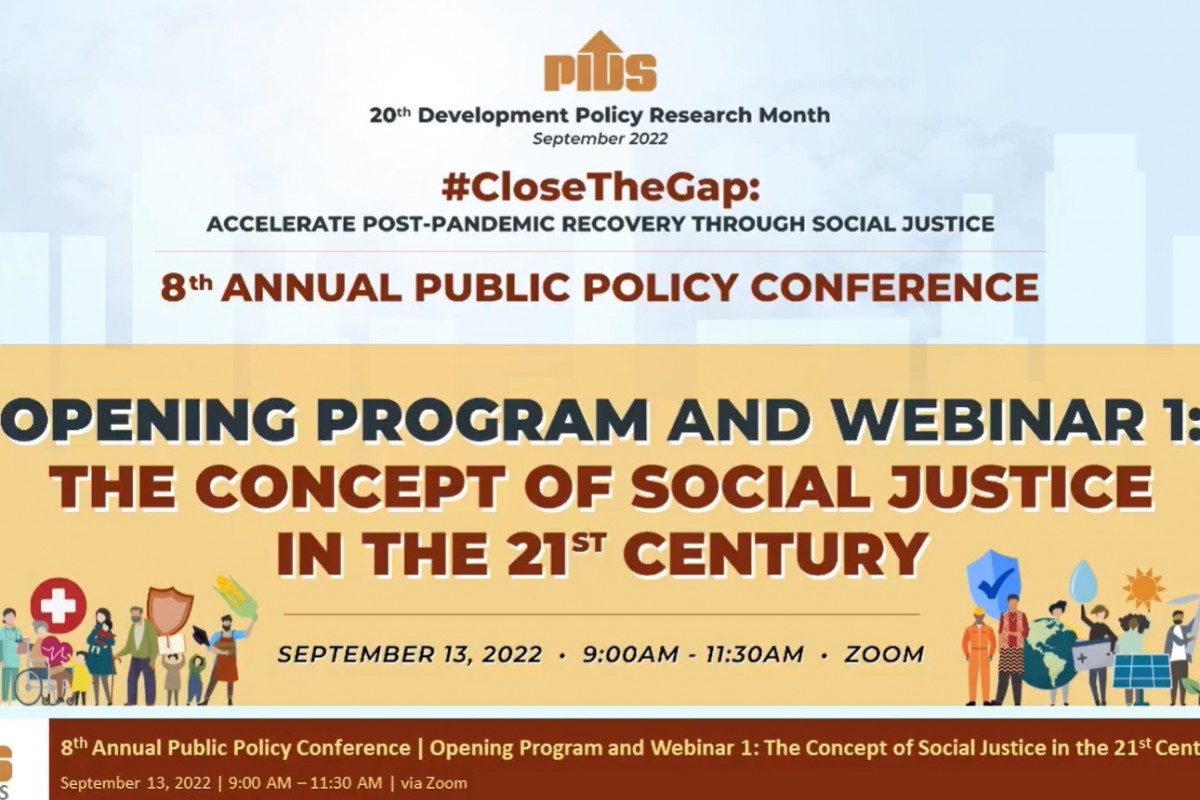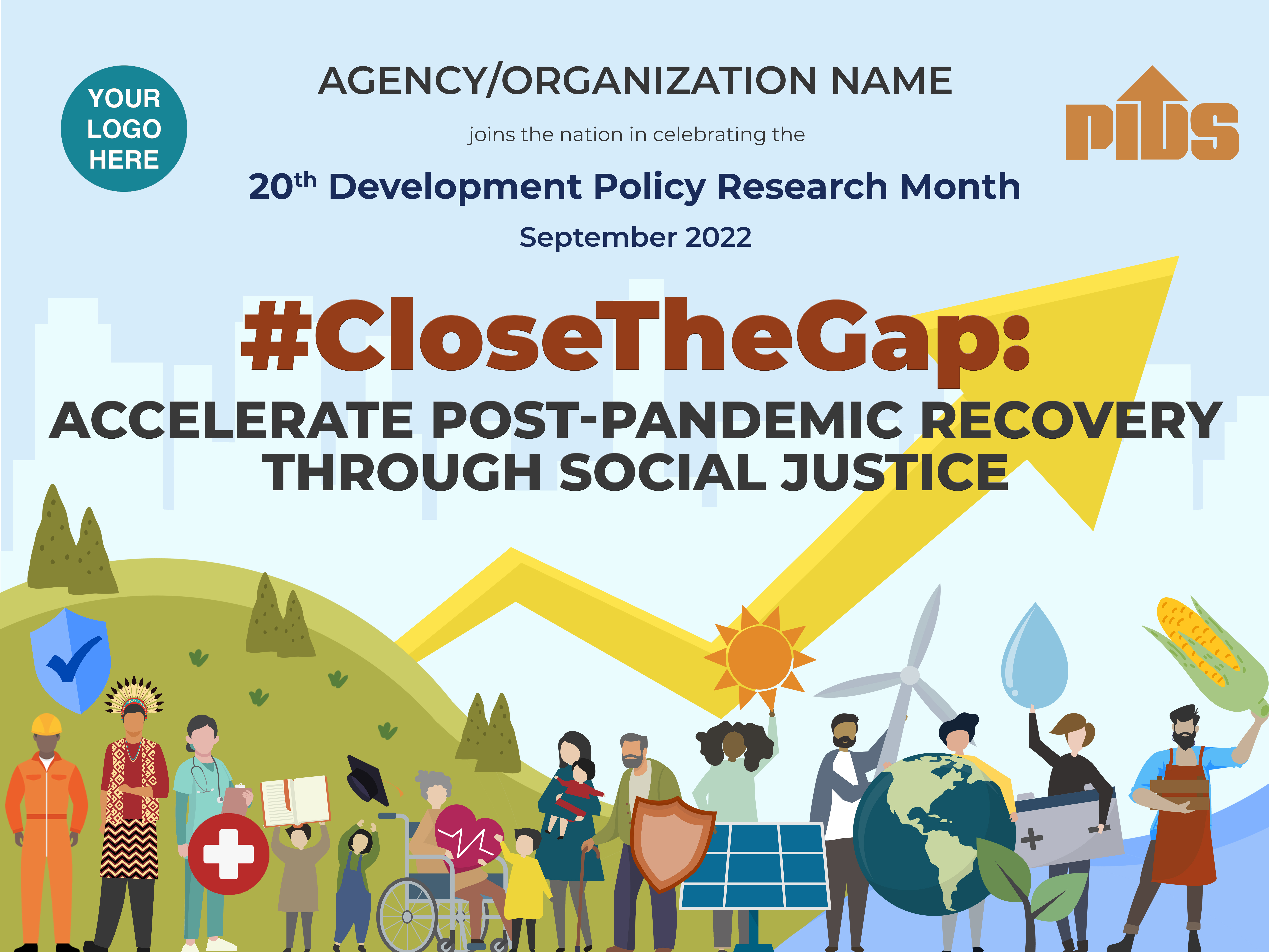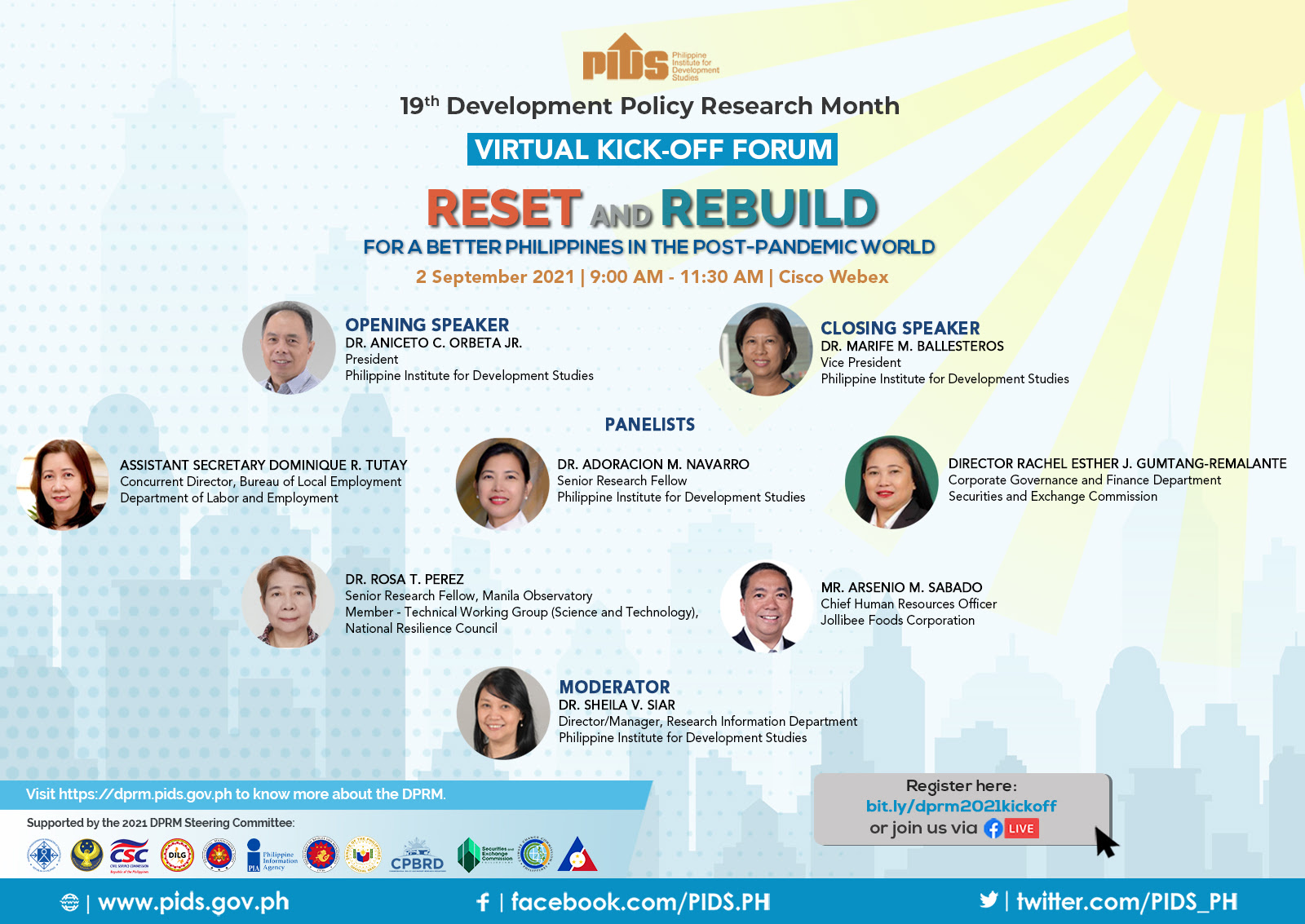QUEZON CITY -- Supporting families in nurturing their children to become more skillful and adaptable is instrumental in enabling a socially mobile society.
This was emphasized by James Heckman, 2000 Nobel Laureate in Economics and Henry Schultz Distinguished Service Professor of Economics at the University of Chicago, during the first webinar of the 8th Annual Public Policy Conference organized by the Philippine Institute for Development Studies (PIDS) with support from the Bangko Sentral ng Pilipinas.
Focusing on skill formation as a pathway to address poverty and create a more just society, Heckman noted that “families and social environments, not just schools, are the major producers of the skills of children.”
He explained that parental support and families play a crucial role in developing soft skills that individuals must learn early on to be more adaptable to various changes later in their lives, especially as part of a skilled workforce.
“Supporting families in engaging and nurturing their children is key to success in education and learning at all stages of a child’s life… Families are the main producers of skills, and effective schools are supported by effective families,” he said, adding that creating a focused skill enhancement policy requires drawing on recent knowledge about the dynamics of life cycle skill formation.
Heckman highlighted the importance of the adaptability of individuals in building a stable and proficient workforce and how this can lead to promoting equal opportunities in a country.
“An effective way to alleviate poverty and inequality and to enhance social mobility is to build skills, not rely on tax and transfer policy, which is still the main vehicle used by most countries,” he said.
He thus urged governments to rethink public policy and invest more in skill development.
“As modern economies emerge, as new technologies appear, skill formation is important. Our recurrent need in this line of work is to understand how people react to the substantial changes in trade, technology, and world patterns of commerce,” he added.
Likewise, he positioned skills as major determinants of “flourishing lives”, describing it as a state where “a person is able to stand on his own two feet, help others around him, and expand the whole level of society.”
Heckman underscored that promoting inclusion and social mobility requires fostering skills. “It’s an effective policy and has been tried and implemented. It has a beneficial effect on all involved—the society at large, the individuals gaining skills, and the larger society around them—in various ways, and it builds successful lives,” he stressed.
The APPC is the highlight of the yearly Development Policy Research Month celebration led by PIDS every September. This year’s theme is “#CloseTheGap: Accelerate Post-pandemic Recovery through Social Justice”.
You may watch the APPC webinar on “The Concept of Social Justice in the 21st Century” athttps://www.facebook.com/PIDS. PH/videos/603922897847039.
For more videos of PIDS events, go to https://www.pids.gov.ph/videos . (PIDS)





